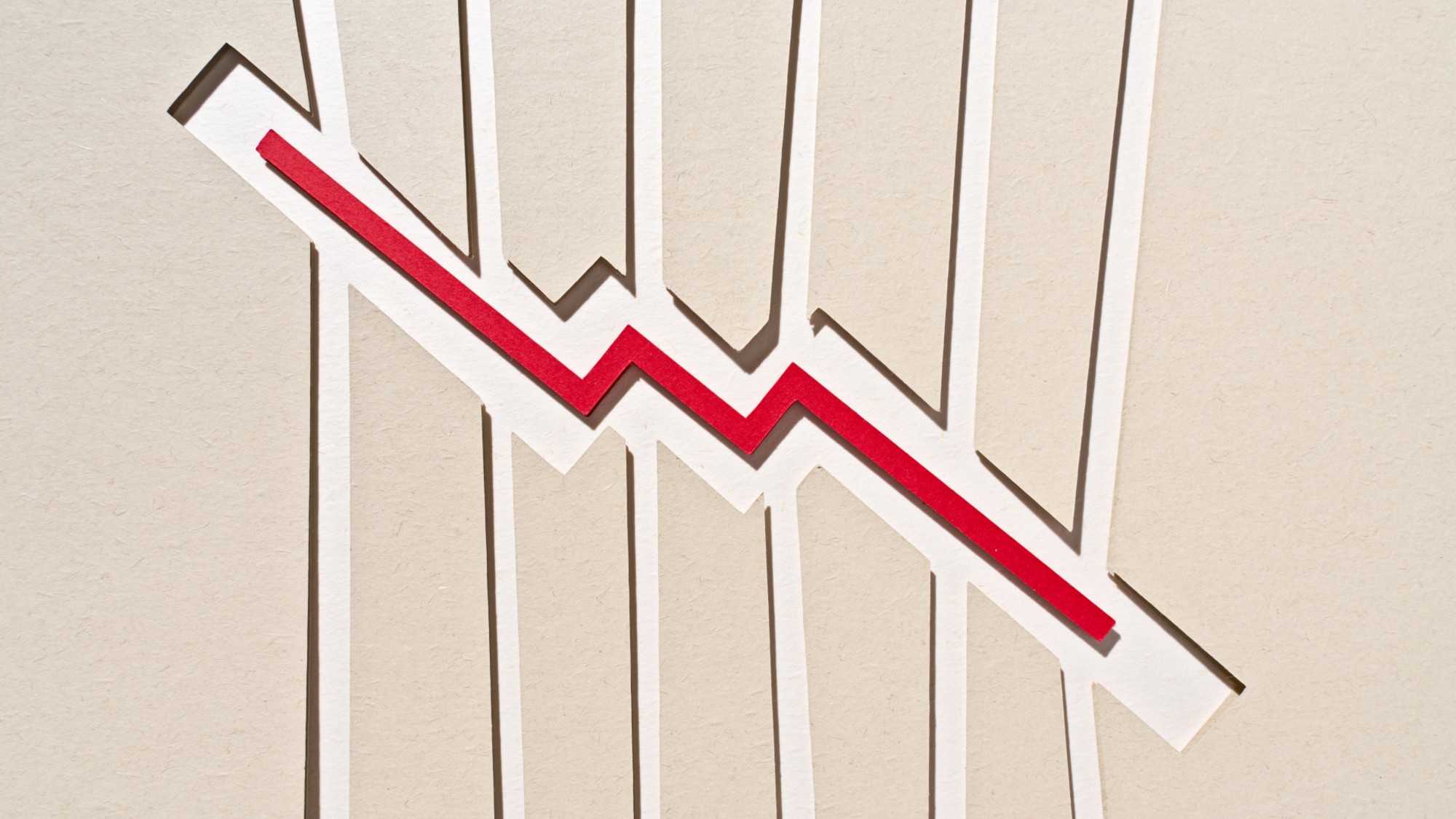Why are stocks in 'correction' and not a bear market?
Investors still hope for a 'flip' in Trump's trade policies


A free daily email with the biggest news stories of the day – and the best features from TheWeek.com
You are now subscribed
Your newsletter sign-up was successful
President Donald Trump's tariff-driven trade wars are taking a toll on stocks. The S&P has fallen more than 10% from its recent high, into what is known as "correction" territory. Is a bear market next?
Corrections are "relatively rare yet symbolically worrisome milestones for the markets," said The New York Times. The S&P isn't the only index taking a beating: Nasdaq and the Russell 2000 have also fallen into correction territory. The turmoil is a "reflection of the uncertainty surrounding Trump's policies" and worries that consumers and businesses are pulling back, "driving the economy into a downturn." That is a surprising turn for a president who once "continually took credit for a booming stock market," said the Times.
But this does not look to be the start of a bear market, said Bloomberg. A bear market is defined as a drop of 20% or more from the recent high, which means that a correction is a signpost on the way to bear territory. The drop in stock prices will probably provoke a "flip in trade and monetary policy," said Bank of America analyst Michael Hartnett. For now, though, "we say this is a correction, not a bear market."
The Week
Escape your echo chamber. Get the facts behind the news, plus analysis from multiple perspectives.

Sign up for The Week's Free Newsletters
From our morning news briefing to a weekly Good News Newsletter, get the best of The Week delivered directly to your inbox.
From our morning news briefing to a weekly Good News Newsletter, get the best of The Week delivered directly to your inbox.
What did the commentators say?
Corrections can be a good thing. Market pros see them as "potentially healthy wipeouts of overdone euphoria," said Stan Choe at The Associated Press. The S&P had seen two straight years of growth of more than 20%, with stock prices rising "faster than corporate profits." The latest correction may simply be "culling too-high enthusiasm among day traders." Corrections always carry with them a "larger fear" that a bear market is in the making, however. While the economy seems "relatively solid at the moment," uncertainty abounds. The economy's future "looks cloudier than usual given all the unknowns."
Investors "spent last year wish-casting about Trump's agenda," Catherine Rampell said at The Washington Post. They assumed he would implement policies they favor, like tax cuts and deregulation, while pulling back from his promises to implement tariffs and reduce the workforce with mass deportations. They also may have assumed that "market losses would temper him." Turns out Trump really meant to do what he said he would do. "Markets are only figuring it out now?"
What next?
"Nobody can say for sure when the selloff will end," said MarketWatch. It can be tough to tell if the correction is starting to "snowball" into a bear market. One detail to keep in mind: Three bear markets within a decade would be an "extremely rare occurrence." The last time that happened was the 1960s. There have already been two bear markets this decade, the first when Covid-19 crashed the markets in 2020 and again when inflation started to spike in 2022. Investors will be keeping an "eye on the upcoming economic data" to see what happens next.
A free daily email with the biggest news stories of the day – and the best features from TheWeek.com
Joel Mathis is a writer with 30 years of newspaper and online journalism experience. His work also regularly appears in National Geographic and The Kansas City Star. His awards include best online commentary at the Online News Association and (twice) at the City and Regional Magazine Association.
